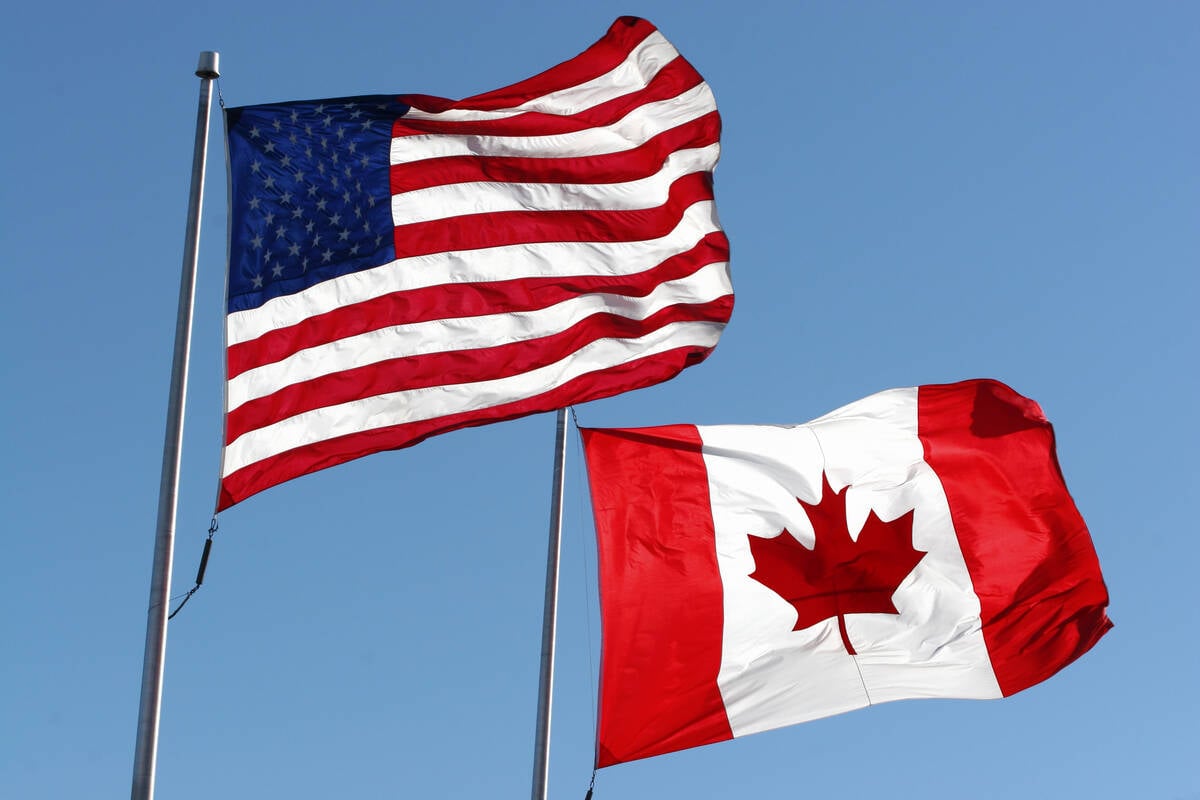GRANDORA, Sask. – Nigel and Louise Hill had a sizable nest egg to travel the world when they retired from the computer business in the late 1980s. But the wanderlust didn’t last long.
“We did it for a while but it gets boring. We can’t do that forever,” said Louise.
“There’s only so much time you want to spend laying around on the beach before your mind turns to mush,” added Nigel.
Instead, the couple embarked on a series of unusual business ventures, the most recent of which is selling pond plants from their acreage west of Saskatoon.
Read Also

Trump cuts off trade talks with Canada
UPDATED: October 24, 2025 – 0910 CST – Adds comments from Prime Minister Mark Carney. Reuters — U.S. President Donald…
It has turned out to be another labour intensive venture, which seems to suit the couple, although there are times when Nigel questions the decision.
“I must admit I’m getting sick and tired of digging holes in the ground,” said the man who was born in England, raised in Australia and came to Canada in 1970.
Pond excavation doesn’t lend itself to mechanization.
“You can’t go in there with a backhoe and start cutting out small intricate ponds. It just doesn’t work that way. It has pretty much got to be done by hand.”
The Hills are in a position to pursue such interests due to the success of Develcon Electronics Ltd., another company co-founded by Nigel in the 1970s.
The Saskatoon firm manufactured computer equipment and was one of the first networking companies in North America.
That’s where Nigel, the company president, met Louise, a Humboldt, Sask., native who was Develcon’s purchasing manager. Nigel stepped down as president of the firm in the late 1980s.
“When we retired out of Develcon, we had the opportunity to go off and pick the things we wanted to do without having the stress of having to make a lot of money on them,” said Nigel.
The first item on their bucket list was to run a scuba diving business in Vanuatu, a small island nation in the South Pacific off the coast of Australia. Nigel taught diving while Louise ran the office. That venture ended in 1994 when the younger of their two daughters fell ill, forcing the family to return to Saskatchewan.
An antsy Nigel soon found another venture to occupy his time. Louise, who had returned with the girls ahead of Nigel, had purchased an Alaskan Husky to provide security on their 40-acre property.
Nigel became intrigued by the breed and eventually latched onto a line of sled dogs from a musher in Montana who had won the famed Iditarod race multiple times.
That was the beginning of Grandora Huskies, a sled dog racing kennel that was home to 65 Alaskan huskies, enough dogs to form two or three complete teams.
Nigel raced with his eldest daughter in Alaska, Yukon, Wyoming, Oregon, British Columbia and the Canadian Challenge from Prince Albert to La Ronge and back.
He also leased teams to other racers.
“Several of our dogs were run in the Iditarod,” he said.
Louise’s job was to handle the Huskies between races.
“I scooped a lot of poop and mixed a lot of meat,” she said.
The dogs chewed through 24,000 boiled eggs, 5,443 kilograms of raw meat and 4,536 kg of dry dog food each year.
The couple found themselves spending 12 hours a day taking care of the animals with little time left over for family.
Nigel logged 2,800 kilometres on a sled per year training the dogs and another 8,000 km running races.
All that mushing took a hefty toll on his body, including a broken ankle and collarbone and plenty of wear and tear on the knees.
In 2006, their days in sled dog racing business were over.
“It just hurt too much,” said Nigel.
They bred dogs for a couple more years and then in 2009 founded Grandora Aquatics, a company specializing in the production of water lilies, lotus, shallow water plants and floating and oxygenating plants.
Floaters retail for $4.95, lilies for $20 to $45 and hardy plants for $10.
The couple has two ponds inside a greenhouse, two outdoor production ponds and two display ponds.
They sell directly to customers and wholesale products to various garden centres, the Saskatoon Farmers Market and the Prairie Water Gardening Society.
Sales during the first year were better than expected, although they got off to a rocky start. Garden centres order most of their water plants in mid-November for delivery starting in the May long weekend and ending around mid-June.
The Hills were late to the game but they found the garden centres liked the quality of their floater plants, which didn’t have to travel as far as the competition from Canada and the United States.
Nigel estimates 85 percent of their business is wholesale sales.
He’d like to see it the other way around because there are better margins selling directly to the customer.
He figures they will have to double their greenhouse space to keep up with the demand for floaters and build another pond outside for overwintering water lilies, which of course means more digging.
“That’s part of the pond business,” Nigel said.















